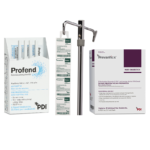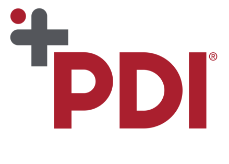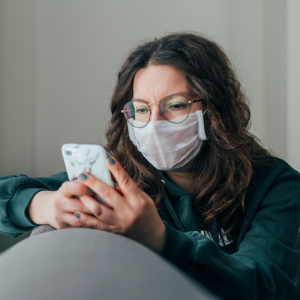Interventional Care


We notice that you are visiting us from . This site only services US-based visitors. Would you like to visit the site that is appropriate for your location?

We recently engaged members of our Clinical Affairs Team for support in answering frequently asked questions around the flood of information coming in around COVID-19 pandemic:
Q: How do I determine credibility of COVID-19 news and information?
A: Take a worldwide novel phenomenon with life, death and economic consequences, add in the greatest information age in human history and what do you get? Chaos.
Even for those of us who have spent our entire adult lives firmly planted in healthcare, infectious diseases and/or epidemiology, this is an unprecedented time. Digesting the information related to COVID-19 is analogous to trying to take a sip from a fire hose and not all the information is equally credible or accurate. Family, coworkers and friends look to us for answers and being wrong is not an option. So, how do you determine what is or is not the truth?
A good first step is to recognize that this is a new phenomenon. There has been an inclination to compare the present state to past events (e.g. 1918 influenza, H1N1, SARS to name a few). While this is a natural tendency, there is something to appreciate in this being a new experience in and of its own right. While comparators offer their own lessons, past is not necessarily prologue for our current situation.
The most critical step in processing information is arguably a careful examination of the source. Trusted sources such as the Centers for Disease Control and Prevention (CDC), are often not the first to release new information. Their credibility, in part, is built on an established protocol of careful review by subject matter experts and a high threshold of evidence. Such standards are conducive to accurate information but come with the cost few are patient for-time. Arguably, agencies such as the CDC and the community of peer-reviewed medical literature are expediting information but in a 24-hour news cycle this leaves a vacuum less credible sources are all too happy to fill.
The following questions should be considered when evaluating new information regarding COVID-19.
The COVID-19 pandemic has challenged all of us in so many extraordinary ways with information coming forward in a deluge. Appreciating the uniqueness of this time and this virus, investigating the source, expertise, plausibility, methods and potential biases will make us better information consumers and ultimately trusted experts in our own right.